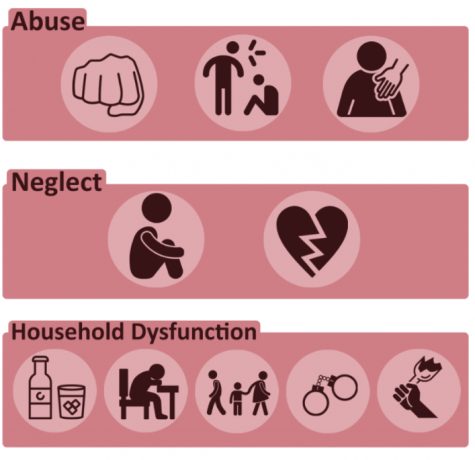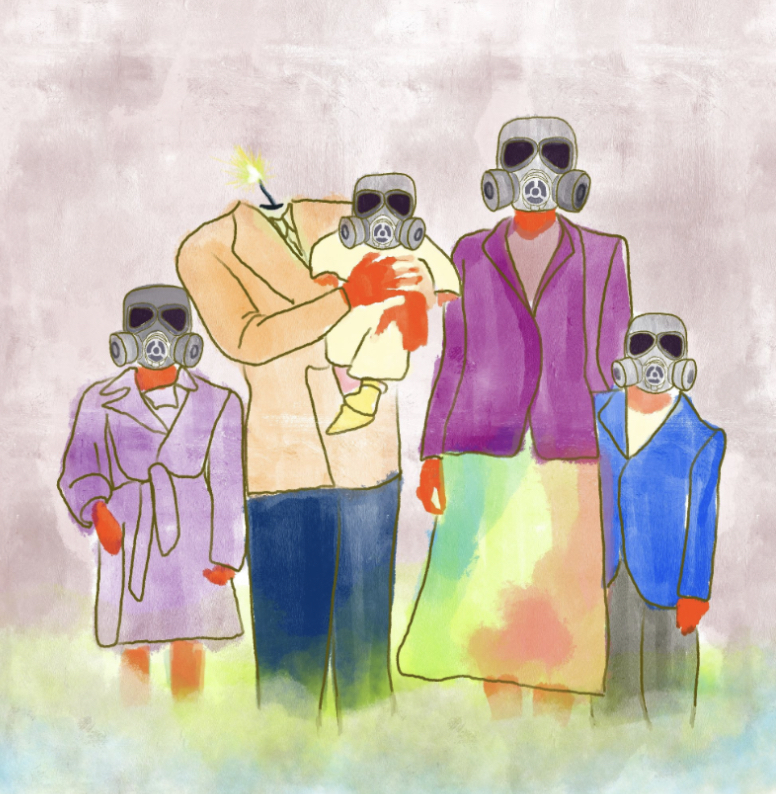How does a toxic household affect performance?
May 26, 2023
It can be challenging to navigate the difficulties of a toxic household environment. It may even be difficult to recognize toxicity signs and even damaging to not know what to do. A toxic family that damages one’s self-esteem can create psychological distress at work or school, resulting in poorer performance. However, not everyone agrees on what might be toxic and what might be strict.
Mental Health
Toxic environments can be detrimental to your health and happiness. With toxic family members, you may experience fatigue frequently, if you spend a lot of time focusing on their passive-aggressive comments, guilt-tripping, or mixed feelings expressed by them. They may use the personal information you shared with them in confidence to damage you. Worse, after dealing with them, you may feel confused, manipulated, and emotionally wounded.
Sophomore Jaime Romero says, “It can make a person feel like they don’t want to do anything and discourage what they want to do.”
Sophomore Javon Ellington expresses his frustration by saying, “I feel terrible. All the arguing saying that I have to do this and that. All the high expectations that I cannot leave when I want or do what I want. It is always, ‘Javon do this,’ but never my sister having to do anything.”
According to the article titled “The relationship between household chaos and child, parent, and family outcomes: a systematic scoping review,” posted on the BMC Public Health website, toxicity has been linked to a variety of adverse developmental outcomes, including more severe social-emotional functioning, cognitive development, performance in school, and behavioral issues.
The effects of parents’ actions
Positive parenting helps children do better in general, having fewer behavioral problems and stronger mentalities. Sophomore Joanlee Martínez says, “If they are not toxic, they can motivate their children by putting them up instead of putting them down because if they tell them they can’t do something, it makes them feel unmotivated.”
It can affect the way you look at yourself and your self-confidence. Junior Jake Tablada says, “You feel as if you’re a failure and that you can never do anything right nor make your parents proud and that is all I wish to do. Children in toxic environments will be scared to express their feelings then bottle it up and it’ll turn into anger.”
Toxicity can make or break you. Freshman Heysel Jimenez says, “If they persuade you, saying you are doing bad, and tell you negative things, it can either push you to be better or affect you mentally by stressing you out or making you anxious about certain things.”
According to the article titled “The Source of Toxic Family Relations,” posted on the website for Psychology Today, psychologists found that the clinical problem of personality disorders is predominantly common among patients who live in toxic family dynamics. A personality disorder is a consistent pattern of conduct that causes distress throughout one’s life. They may have impairment in how they perceive other people, themselves, and events. They may also have affective issues, such as an inability to manage their emotions. These include diagnoses such as narcissistic, antisocial, and borderline personality disorders.
Toxic parents can ruin childhoods and ruin connections between one another. It kills emotional connection because kids may not talk to the parents when they are older or may not feel comfortable around them.
Javon says, “I can’t wait until I turn 18. The way parents act ruins the bond that was meant to be built. It is irritating because they can say no to everything, but you have to do everything for them. They think just because they put you in the world, you owe them everything, but we did not ask to be here.”
Performance in school and sports
Toxicity in the home may have an impact on academic performance, cognitive abilities, and communication. Students may be sleep deprived, unfocused, undetermined or may be down when they are doing their work. They may also not want to ask for help, feeling as if they’ll be treated worse if their parents were to find out.
Sophomore Axel Mendoza says, “Instead of focusing on their academics, they’re thinking about what’s going on in their household.” They can feel so stressed that they may turn to drugs or things that they are not supposed to rather than focusing on their education.
Household toxicity can affect athletes as well. The child may feel lonely if no one shows up for them during their games. It may cause them to stop putting their heart into their sport. Joanlee says, “It affects me in boxing. I can’t concentrate and perform as well as I’m supposed to.”
They start to feel as if they cannot play the sport they love because their parents will not support their dream. Sophomore Michael Columbie says, “Let’s say you’d want them to come to a game that is important to you, but they don’t show up. It will affect you in a way and may cause you to perform poorly.”
They may also injure themselves or another player because of their anger from their family member’s absence. Joanlee says, “A child can become aggressive. If they cannot release their anger, they may take it out on others.”

The benefits of strict parenting
There is a difference between toxic parenting and strict parenting. A strict parent does what is best for you and demands things to get you ready for the world. A toxic parent adds insults and abuse to the mix. Some strictness from parents can help academically by giving children responsibilities for their chores and teaching them to multitask.
Being on top of their grades will help them focus on what is important, separating the unnecessary. This can help with listening and comprehension skills. Joshua says, “It can make one open to learning and being able to listen to teachers when instructed to do an assignment.”
Some believe that emotional discipline makes a child become more responsible and independent. “It gets you ready for the world. Like when people say no to you, you will be able to take it rather than not being able to take no for an answer because you have been spoiled all your life. It also stops the child from becoming an abusive parent in the future from what they went through, wanting it to be better,” Javon says.





